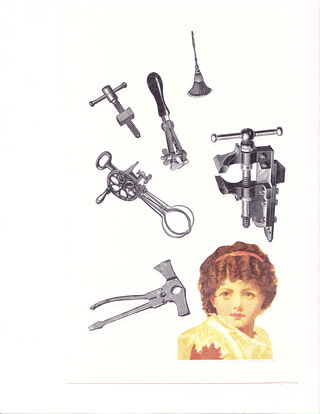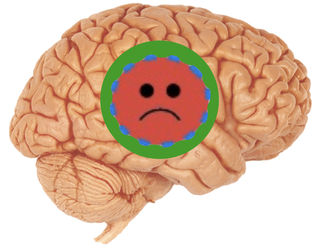Kijun Times
Kijun Times 는 교내 영어잡지,신문 동아리로 다양한 주제에 관한 이슈로 원고를 작성하며 영어 잡지를 만드는 동아리입니다.
매년 잡지 출판뿐만 아니라 자신의 진로와 관련된 개인기사, 모둠기사를 작성함으로써 영어 실력향상은 물론 주제에 제한이 없기 때문에 다양한 진로에 접목 가능합니다.
We are looking for a new journalist for The KIJUN TIMES.
Anyone can be a journalist for The KIJUN TIMES.

Why Are So Many People Unhappy? |
|||||
|---|---|---|---|---|---|
| 이름 | 김유진 | 등록일 | 15.11.18 | 조회수 | 209 |
|
Your brain is designed to scan for threats, and social threats trigger your natural alarm system when there are no immediate physical threats. This danger radar helped our ancestors survive, but it leaves you with a constant sense of threat until you know how it works. Then you can rewire yourself to see the world in new ways.  Source: author's art Our brain evolved to anticipate pain. Imagine a lizard in the claws of an eagle. Its survival prospects are bad at that point, so the brain has a brilliant capacity to learn from pain to avoid it in the future. The pain of the eagle's claws triggers a big surge of cortisol, which connects every neurons active at that moment. That builds an advance warning system which turns on the cortisol the instant those signs appear again. The next time an eagle makes a dark shadow over the lizard's head, it starts running, and it survives! Cortisol creates a sense of dread that motivates you to do whatever it takes to make it stop. When you see a reptile basking in the sun, you may think it's the picture of happiness, but it is actually very stressed. A lizard is in constant danger of being eaten alive when it's out in the open. It would rather be hiding under a rock, but when it does, hypothermia and hunger set in and trigger cortisol. That sends it out into the sun, where cortisol triggers scanning for predators and a rush back to hiding as soon as its metabolic needs are met. A reptile is constantly running from pain, and its brain is perfectly designed for the job! Mammals evolved a new kind of pain: social pain. Mammals need social groups to protect their young from predators. Reptile lose most of their babies to predators, but they don't stress about it because they can produce thousands of babies. Mammals can only produce a few because a warm-blooded baby is so hard to gestate. So mammals strive to keep every single baby alive. This is how attachment evolved. A big surge of oxytocin at birth causes attachment between mother and child, and that attachment transfers to a larger group over time. Oxytocin makes a mammal feel safe in the company of others, but it makes a lack of social support feel like an urgent survival threat. You don't consciously scan for predators, or seek safety in numbers to keep your babies alive. But you were born helpless and vulnerable, and needed social support to survive. The pain of your youth connected neurons that turn on your cortisol today. The pain you experienced before age eight and during puberty build the superhighways in your brain because they were paved by myelin, a brain chemical that flows in those years. The pain you observed in others during those years built superhighways thanks to your brain's natural mirroring ability. Every one of us builds pain pathways because our brain is cleverly designed to avoid touching fire more than once. Each brain strives to avoid pain using the neural pathways it has. Your mammal brain and your human cortex work together to promote your survival, but your inner mammal defines survival in a quirky way. It cares about the survival of your genes even though you don't consciously care about them; and it relies on circuits built in youth when you lacked the sophisticated survival knowledge you have today. This is why a bad hair day can feel like a survival threat despite your best intentions. A social threat is a survival threat to the mammal brain once your basic needs are met.  Source: author's image But life is in a herd of mammals is not all warm and fuzzy. Each brain is focused on its own survival needs, and an animal can get bitten if it reaches for food or mating opportunity that a bigger critter had its eye on. Natural selection built a brain that avoids pain by holding back when it sees that it's weaker. It does this by constantly comparing itself to others and releasing either happy chemicals (serotonin, dopamine) when it seems safe to assert, or cortisol when it seems best to hold back. If you get fed up and want to leave the group, your inner mammal makes you feel like a lone gazelle in a world of lions. It's not easy being a mammal! Your brain makes social comparisons as if your life depended on it. I'm not saying you should think this way, but your brain will go there whether you want to or not. When you know why, it helps you redirect your thoughts in a more useful way. You have to do this for yourself. You cannot expect the world to do it for you. You may have heard that "our society" is the cause of unhappiness. You may think happiness was effortless in other times and places, and it will be effortless for you when the world is fixed. This is false. People have always been mammals and always will be. Instead of blaming the world, you can appreciate the survival mechanism that kept your ancestors' genes alive in a hazardous world. Cortisol frees us to try new things and still pull back in time to avoid harm. Cortisol feels bad because that works -- it gets your attention and motivates you to do what it takes to make it stop. If you rush to mask your cortisol with good feelings, you can end up with habits that cause you more unhappiness in the long run. Instead, use this simple plan each time you feel bad: 1. remember that cortisol is metabolized in twenty minutes if you don't feed it 2. distract yourself for twenty minutes with something that will not frustrate you 3. then go back for one minute and take a calm look for the threat that triggered you to see if there's information you need 4. remind your inner mammal that you're safe because you can manage real threats and ignore false threats [You will end up frustrated if you distract yourself by putting something in your mouth (food, alcohol, drugs). Be ready with other ways of engaging your attention. Any step toward meeting your needs makes your brain feel good.] More on this in my book This brain we've inherited is designed for survival, not for happiness. It releases the bad feeling of cortisol when it sees anything related to a bad feeling in your past. All animals have cortisol, even clams! All mammals manage it with the same basic structures, like the amygdala, the hippocampus and the hypothalamus. We humans use this ancient limbic system together with our big cortex to promote our survival. That means we have billions of extra neurons to find potential threats. When your cortisol turns on, your big cortex looks for signs of threat, and it is good at finding what it looks for! That triggers more cortisol, which triggers more threat-seeking. You can end up in a bad loop. You are able to stop it when you understand the operating system we've inherited. |
|||||
| 이전글 | Prisoner 819 did a bad thing…Prisoner 819 did a bad thing… |
|---|---|
| 다음글 | 5 Ways to Defuse Holiday Stress |